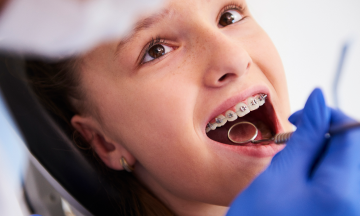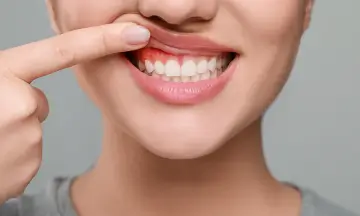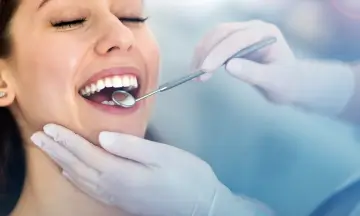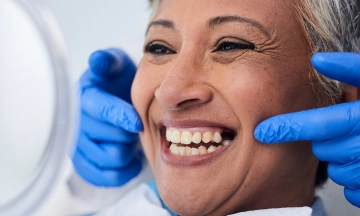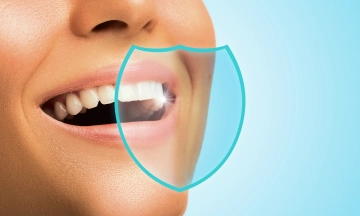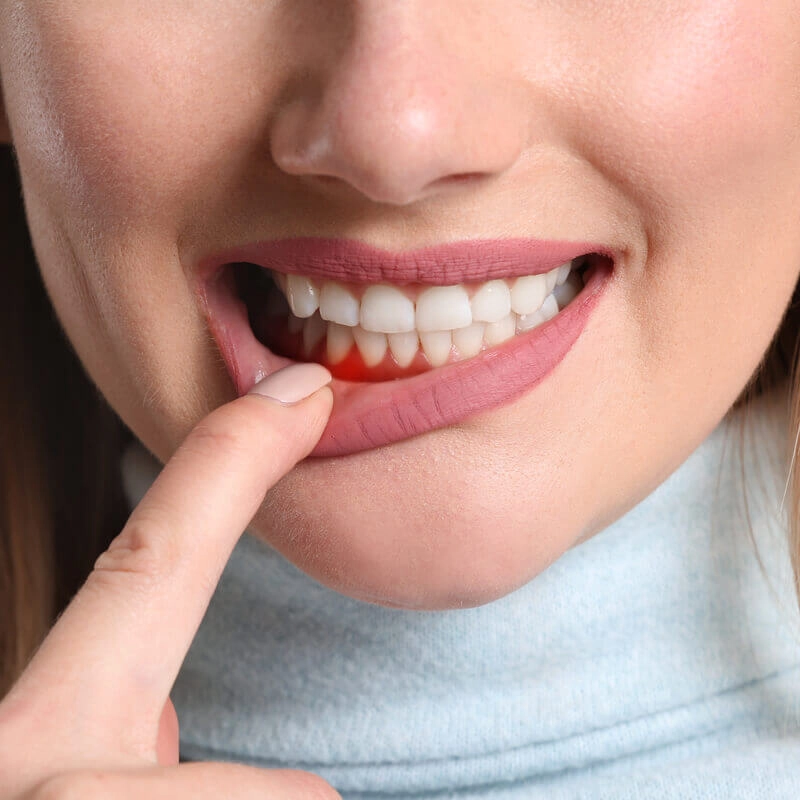
What is Gingivitis and how to treat it?
Gingivitis is a type of common and mild gum disease that may cause irritation, redness, and swelling of your gums or gingiva, the part of your gums surrounding the base of your teeth.
If Gingivitis is not treated it may lead to periodontitis. It is a form of gum disease that can increase the risk and damage the soft tissue and bone that supports the teeth.
Research shows that there is a great prevalence of gingivitis and periodontitis in the Indian population. It is seen that 95% of the Indian population suffers from periodontal disease.
This is an alarming concern as it is one of the key reasons for tooth loss in our country.
What are the common causes of Gingivitis?
Gingivitis is the result of the build-up of plaque. Plaque is a sticky film containing bacteria located on the teeth and gums. As plaque advances, it hardens and becomes tartar. The bacteria found in plaque can produce toxins that can irritate the gums and cause them to become red, inflamed, swollen, and even cause them to bleed.
Common causes of gingivitis are:
Poor oral hygiene: Improper brushing or lack of brushing and flossing results in the accumulation of plaque and tartar. This is one of the most common causes of gingivitis.
Smoking: This causes an increase in the number of pockets that form in the gums and worsens the gum health and results in multiple gum infections.
Hormonal changes: This can make you more vulnerable to gum disease and increase gum irritation and sensitivity.
Diabetes: It is observed that people with diabetes are at a higher risk for gum disease. This is mainly because it reduces the body's ability to get rid of and fight against harmful mouth bacteria.
Deficiencies: A deficiency in Vitamin C could lead to gum disease and gingivitis.
Stress: When the body is under stress it struggles to fight against bacteria and eliminate them. This could result in several health conditions including gingivitis.
Other underlying illnesses: Gingivitis could also be a symptom of other underlying health conditions such as leukaemia, HIV/AIDS or cancer.
Improper dental care: Broken fillings, improper dental appliances or crooked teeth can also result in gingivitis.
Genetic factors: If there is a family history of gingivitis, there is a high chance that you may develop gingivitis as well.
What are the signs and symptoms?
Here are some underlying signs and symptoms of gingivitis:
What are the home remedies to treat gingivitis?
Good oral hygiene: To maintain good oral health, it is important to brush and floss regularly. Use a soft-bristled toothbrush and rinse your mouth after every meal.
Saltwater rinse: Salt can act as a disinfectant and soothe bleeding gums. Add half a teaspoon of salt to a glass of lukewarm water and mix it. Swish the solution in your mouth for a couple of seconds and spit the solution.
Diet: Avoid sugary foods and beverages and incorporate calcium-rich foods in your diet.
Vitamin C: Include Vitamin C in your diet for overall gum health. Oranges, Mango, Kiwi and Papaya are good sources of Vitamin C.
Turmeric: Turmeric gel can be used for fighting infections thanks to its anti-inflammatory and anti-fungal properties. To treat gingivitis, apply the gel on the gums and leave for 10 minutes and rinse.
Oil pulling: Swishing a few tablespoons of coconut oil and spitting it out is known to improve overall gum health. It helps in getting rid of some toxins and bacteria.
Anti-bacterial mouthwashes: Use an anti-bacterial mouth wash as part of your oral care. It helps in getting rid of bacteria that are difficult to reach with a toothbrush or floss.
How does a dentist treat Gingivitis?
Several treatments can be performed by the dental professional based on the severity of the gum disease. The dentist can perform:
Professional dental cleaning: A professional cleaning is performed to remove plaque and tartar above and below the gum line. It is however not a treatment for gum disease but can serve as a preventive measure.
Scaling and root planing: This is a deep clean process performed under a local anaesthetic. It helps in getting rid of plaque and tartar above and below the gum line as well as smoothens the roots. This helps in getting rid of the bacteria and aids the gums to re-attach to the teeth.
Tissue grafts and tissue regeneration: This procedure helps to bridge the areas where the gums have receded. The graft tissue, most often taken from the palate, is sewn into place, adding tissue to the affected area.
Tissue regeneration is carried out when the bone that supports the teeth has been destroyed. This procedure promotes the growth of bone and gum tissue.
Bone surgery: This process involves the smoothening of shallow craters in the bone. Reshaping the bone around the teeth helps in decreasing the craters and makes it more difficult for the bacteria to collect and grow.
Book an appointment with your dentist if you notice any signs of gingivitis and the home remedies doesn't seem to help. It is important to schedule regular check-ups with your dentist to avoid dental problems and to improve your oral health.
Watch this video where one of the patients at dental solutions, Irshad Ahmed shares his experience after successfully undergoing treatment for Gingivitis.
Visit the dental clinic if you feel you have gums-related problems or gingivitis. Sakra World Hospital provides gum and gingivitis treatment in Bangalore having the best dentists to take care of you.








